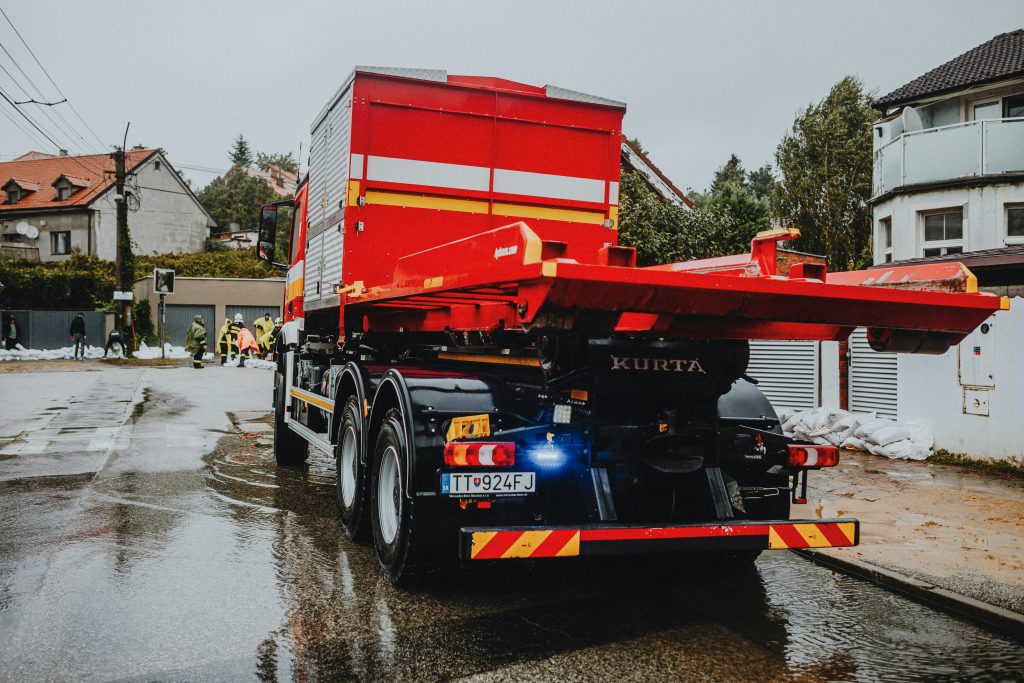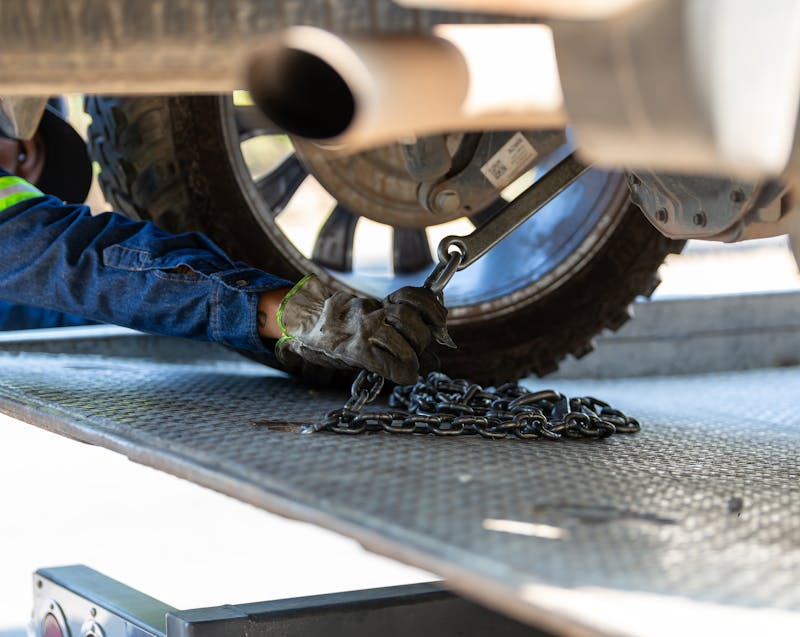- Flatbed towing is the safest method for luxury and sports cars, preventing damage to the undercarriage, suspension, and drivetrain.
- Choose experienced towing professionals who specialize in high-end or exotic vehicles and understand their unique handling requirements.
- Always verify insurance coverage to ensure your vehicle is protected against any potential damage during transport.
- Inspect equipment quality—modern flatbeds with hydraulic lifts, soft straps, and safety locks are essential for secure loading.
- Ask detailed questions about response time, pricing, and driver expertise before hiring a towing service.
- Avoid red flags like vague pricing, lack of insurance documentation, or outdated tow trucks.
- Preparation matters: document your car’s condition and remove personal items before towing for added security.
Owning a luxury or sports vehicle is more than just a statement of success—it’s a reflection of precision, performance, and passion. These cars are engineered with advanced technology, delicate suspension systems, and low ground clearance that demand extra care and expertise, especially when it comes to towing. Not every towing company has the equipment or experience to handle these vehicles safely. Choosing the right service could be the difference between preserving your car’s pristine condition and dealing with thousands of dollars in damage.
This guide dives deep into the most important factors to consider when choosing a towing service for your luxury or sports car. Whether you’re looking for a towing company that provides sports car towing services with flatbeds or simply preparing for unexpected roadside emergencies, understanding these details can protect both your investment and your peace of mind.
Understanding the Risks of Improper Towing
Sports and luxury vehicles are built for performance and aesthetics, not for rough handling. Unfortunately, standard towing methods—like hook-and-chain or wheel-lift towing—can easily damage these types of vehicles.
Common risks of improper towing include:
- Undercarriage damage: Low-slung sports cars can scrape or tear panels when pulled at sharp angles or over steep ramps.
- Tire and suspension strain: Lifting by the wheels can distort alignment or overstress performance suspensions.
- Drivetrain damage: Towing all-wheel-drive or rear-engine vehicles incorrectly can ruin transmissions or differential systems.
- Body damage: Chains or hooks can scratch expensive paintwork or deform bumpers and side panels.
Because of these vulnerabilities, flatbed towing has become the standard for transporting luxury and performance vehicles safely.
Why Flatbed Towing Is the Best Choice for Sports Cars

Flatbed towing involves loading the entire vehicle onto a platform so that no part of it touches the road. This method provides maximum protection from road debris, uneven surfaces, and mechanical strain. It’s particularly important for exotic, electric, and sports cars with specialized features.
Key advantages of flatbed towing include:
- All-wheel safety: The car remains stationary throughout transport, avoiding wear on tires and drive components.
- Better ground clearance: Tilt-bed systems allow for a smooth, low-angle loading process that prevents scraping.
- Reduced risk of movement: Secure straps and wheel nets keep the vehicle firmly in place during transit.
- Long-distance security: Ideal for transporting high-value cars across cities or even states without exposure to hazards.
If you’re searching for someone who provides sports car towing with flatbeds, look for companies that specialize in handling high-end vehicles and use modern flatbeds equipped with hydraulic lift systems.
Key Considerations When Choosing a Towing Service
Not all towing companies are created equal. Selecting the right one for your luxury or sports car requires careful attention to specific details that ensure safety, reliability, and professionalism.
1. Type of Equipment and Technology Used
A professional towing company should have modern, well-maintained flatbed trucks. Outdated or poorly serviced equipment poses serious risks.
- Look for hydraulic flatbeds that allow smooth, adjustable loading angles.
- Ensure the company uses soft straps or wheel nets instead of chains to avoid scratching or bending parts.
- Ask if they have winch systems to load vehicles that can’t start.
- Confirm that the trucks are equipped with wheel chocks and safety locks to prevent vehicle movement during transport.
2. Experience with High-End Vehicles
Luxury and performance vehicles require a level of expertise that goes beyond standard towing.
- Ask how frequently the company tows high-end or exotic cars.
- Check whether their drivers receive specialized training for handling vehicles with limited ground clearance.
- Look for companies that have experience with electric and hybrid models, as these often have unique towing requirements.
- A seasoned operator knows the exact anchor points and weight balance needed for safe loading.
3. Insurance and Liability Coverage
Never assume that every towing company carries sufficient insurance. Always verify coverage.
- Request proof of comprehensive liability insurance that covers damages to your vehicle during loading, transport, and unloading.
- Ask whether the company’s coverage includes exotic and luxury vehicles specifically, as some policies exclude high-value cars.
- Get a written agreement or service receipt that outlines coverage before the tow begins.
4. Response Time and Availability
Breakdowns can happen at any time, so reliable availability is crucial.
- Choose a towing service that offers 24/7 emergency response.
- Ask about average arrival times in your area.
- Services that provide real-time tracking or GPS updates offer additional peace of mind.
- Inquire whether they have multiple flatbeds available to handle urgent calls efficiently.
5. Service Area and Long-Distance Capabilities
Some towing services only operate locally, while others handle long-haul transportation.
- If you frequently travel or move your car for events, choose a company with intercity or interstate towing options.
- For cross-state towing, check if they handle permits, tolls, and transport logistics on your behalf.
- Long-distance services should provide vehicle condition reports and photo documentation before and after transport.
6. Customer Reputation and Reviews
A company’s reputation often reveals its true reliability.
- Search for reviews on Google, Yelp, or automotive forums.
- Focus on comments from owners of similar vehicles.
- Be cautious if you find repeated complaints about vehicle damage, delays, or poor communication.
- Recommendations from car clubs or dealerships can be especially valuable.
7. Transparent Pricing and Policies
A trustworthy company will always be upfront about costs.
- Request a written estimate before the service begins.
- Ask for a breakdown of hook-up fees, mileage charges, and after-hours rates.
- Be aware of potential hidden fees, such as waiting time or storage costs.
- Compare pricing with other professional towing services, but remember that the cheapest option isn’t always the safest.
Preparing Your Vehicle for Safe Towing

Proper preparation ensures a smooth towing experience and minimizes potential damage.
Before the tow:
- Document your car’s condition by taking photos from all angles.
- Valuables and personal belongings are not covered by towing insurance, so remove them from your car.
- Secure loose parts like spoilers, mirrors, or removable accessories.
- If possible, disable alarms to prevent them from triggering during transport.
During pickup:
- Observe how the operator handles the loading process. The ramp angle should be gradual to protect the front bumper.
- Ensure soft straps are used, and they’re attached to the correct anchor points.
- Confirm that the car is balanced and centered on the flatbed.
After delivery:
- Inspect your car carefully before signing off on the delivery.
- Report any new damage immediately and document it with photos.
Questions to Ask Before Hiring a Towing Service
To avoid costly mistakes, always ask the following before committing:
- Do you use flatbeds exclusively for sports and luxury cars?
- How experienced are your drivers with my vehicle type or brand?
- What kind of insurance coverage do you provide, and what does it include?
- How do you secure vehicles during loading and transport?
- Are you available 24/7 for emergency towing?
- Can I track the vehicle in real time during the tow?
- What are your standard and long-distance towing rates?
These questions help you assess professionalism, safety practices, and transparency.
Specialized Towing vs. General Towing Services
While general towing services may be suitable for regular vehicles, sports and luxury cars demand specialized attention.
Specialized towing services:
- Employ trained operators who understand exotic vehicle specifications.
- Use advanced flatbeds with hydraulic lifts, low-angle ramps, and safety mechanisms.
- Provide additional protection measures, such as enclosed trailers for long-distance hauls.
- Offer concierge-level service that caters to high-value clients.
General towing services:
- May lack equipment designed for low-clearance or high-performance vehicles.
- Often use chain-based methods that a not suitable for luxury cars.
- Might not carry adequate insurance for exotic models.
While specialized towing may cost more, it provides significantly greater peace of mind and protection for your investment.
Extra Services Worth Considering
Some towing companies go beyond basic transport and offer premium or auxiliary services that can be valuable for luxury car owners:
- Enclosed vehicle transport: Shields the car from weather, debris, and prying eyes during long-distance travel.
- Battery jump-start and tire replacement: Convenient for minor roadside emergencies without requiring a full tow.
- Lockout assistance: Helps regain access without damaging locks or electronic systems.
- Long-distance relocation: Ideal for collectors moving multiple vehicles or attending car shows.
- Membership packages: Some companies offer annual plans that include priority towing, storage, or maintenance support.
These value-added services demonstrate a company’s commitment to comprehensive customer care.
Red Flags to Avoid When Selecting a Towing Company
Not every towing service claiming to handle luxury vehicles is trustworthy. Avoid companies that exhibit the following warning signs:
- Vague or cash-only pricing without receipts or invoices.
- Poor or inconsistent online reviews, especially regarding vehicle damage.
- Unmarked or outdated trucks that appear poorly maintained.
- No proof of insurance or refusal to show certification.
- Use of metal chains or hooks instead of straps or wheel nets.
- Lack of clear communication or unwillingness to answer technical questions.
A professional company will always be transparent, well-equipped, and willing to explain every part of their process.
Conclusion: Protecting Your Investment with the Right Partner
Your sports or luxury vehicle deserves more than just a standard tow—it requires specialized care, professional handling, and equipment designed to protect its unique engineering. Choosing a towing service should never be a rushed decision. Take the time to research credentials, verify insurance, and review customer feedback before entrusting anyone with your vehicle.
When researching who provides sports car towing with flatbeds, prioritize companies that demonstrate expertise, use high-quality equipment, and maintain a strong reputation for handling premium vehicles. The right towing partner doesn’t just move your car from point A to point B—they safeguard its condition, value, and performance for years to come.
By applying these considerations, you’ll not only ensure your luxury vehicle receives the protection it deserves but also gain confidence knowing that, no matter what happens on the road, your prized possession is in capable hands.
